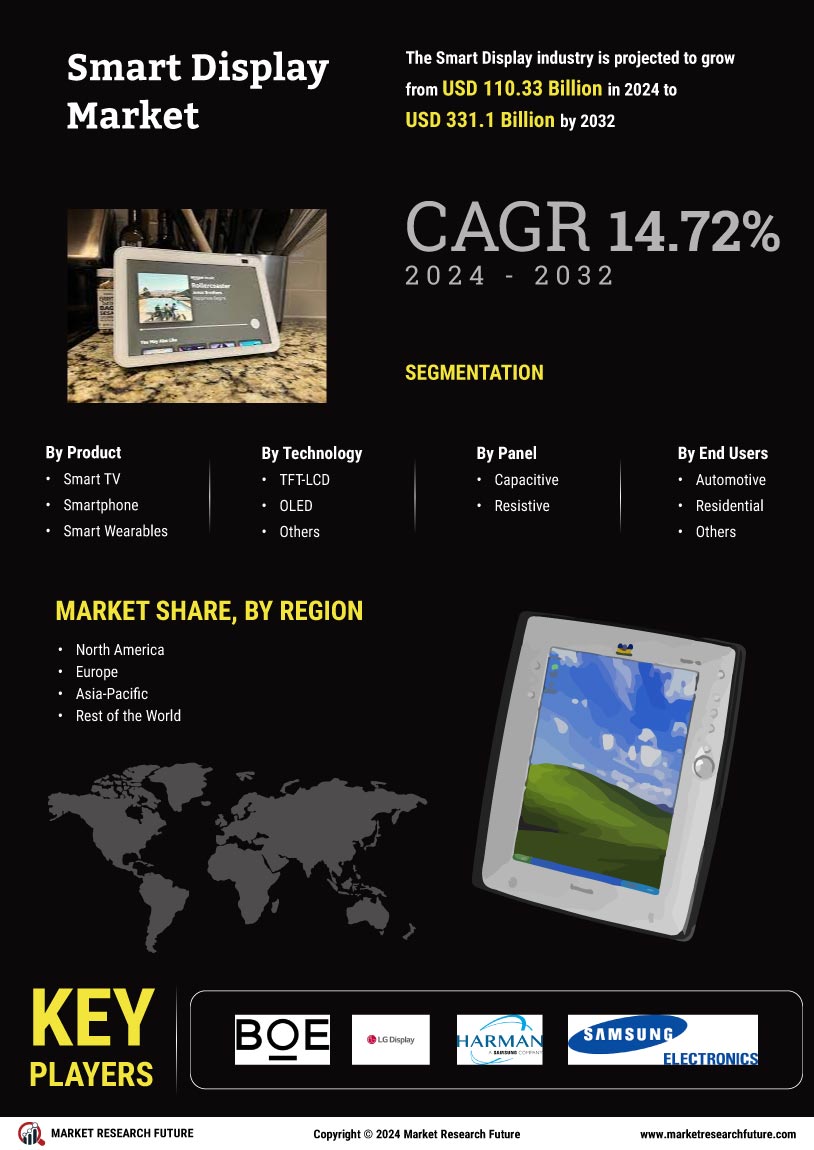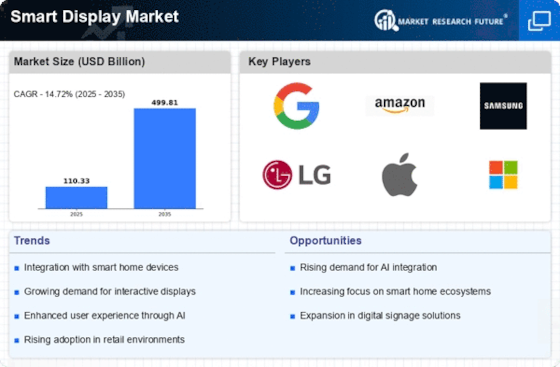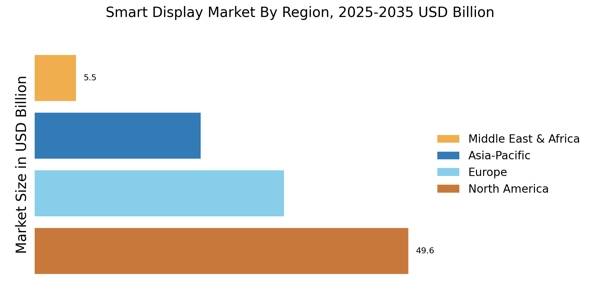Research Methodology on Smart Display Market
1. Introduction
This research study aims to analyse the current market trends of the smart display market with a special focus on market drivers, restraints, and opportunities. The report will also assess an in-depth analysis of key players in the market. The research methodology used for this research report is mainly a quantitative and qualitative approach, with an extensive analysis of the current and emerging market trends in the global smart display market along with its forecast from 2023 to 2030.
2. Research Objectives
The main objective of this research report is to analyse the current market trends and opportunities to determine the growth potential of the smart display market. Specific objectives are as follows:
-To provide an in-depth analysis of the smart display market
-To identify market drivers and restraints of the market
-To assess key players in the smart display market
-To identify opportunities, challenges, and threats in the market
-To provide a comprehensive outlook of the market
3. Research Scope
This research report covers the current and future trends of the global smart display market, with a specific focus on the market drivers, restraints, and opportunities. The report provides an in-depth analysis of key players in the smart display market, with detailed market segmentation by product type, applications, and geography. The geographical scope of the report includes North America, Europe, Asia-Pacific, Rest of the World.
4. Secondary Research
Secondary research is a crucial part of this report and extensive research was conducted in order to identify the current and future trends of the global smart display market. Secondary sources such as company websites, company annual reports, statistical databases, product catalogues, relevant reports available on government websites, and journals were used in the research.
The main objective of the secondary research is to identify and collect data on the market size, market trends, competitive landscape, and current and future market opportunities.
5. Primary Research
Primary research helps to understand the market dynamics and current trends in the market and identify opportunities to improve the report. To that end, a survey was conducted with the help of industry experts and retailers in the global smart display market. The survey covered market trends, challenges, and opportunities, and collected opinions and insights on market challenges and opportunities, competitive landscape, and scope of the market.
6. Analysis Tools
The research report is analysed using various analysis tools such as Porter's Five Forces, SWOT Analysis, Descriptive Analysis and Value Chain Analysis to provide an in-depth understanding of the market.
7. Final Analysis
The report uses a quantitative and qualitative approach to analyse the current market trends and provides a comprehensive outlook of the global smart display market. The report covers market segmentation and analysis by product type, applications, and geography. The report further provides a detailed analysis of the competitive landscape with an assessment of key players in the field. The report also provides an analysis of market drivers, restraints, and opportunities.
















